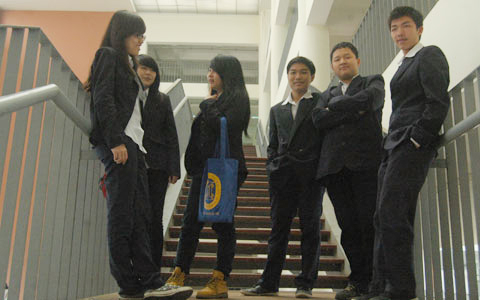

The heads of the schools met in Hanoi on September 27 to discuss the issues related to admission.
Hanoi National University (HNU) has pioneered a new method to select students for some of its member schools.
HNU asked the students, who passed the July entrance exams to the school, to sit a competency assessment test in early September to identify special training programs designed for talented students, high-quality training courses and training programs in accordance with international standards.
A report from HNU showed that 80 percent of the 1,000 students who attended the test thought highly of the testing method, saying it assessed the capability of students.
HNU and several other schools are now going to apply the method on a large scale, not only to select students for their special training programs, but to enroll students for regular training courses as well.
The university entrance exam which is organized annually to find the best students for university education, in the eyes of educators, has become outdated, and should be replaced with the new testing method.
Under the “out-of-date” exam method, questions are raised for students to answer and show what they have learned at general school. Meanwhile, the new testing method will identify the real ability of students in many fields.
Nguyen Trong Giang, President of the Hanoi University of Technology, has suggested that HNU’s testing method should be used by a group of the country’s most prestigious schools in 2015 on a trial basis, before it is applied on a large scale throughout the country.
Doan Quang Vinh, deputy director of Da Nang University, applauded the idea, saying that it would be better for a group of schools to share experiences in exam organization and share exam results.
However, though agreeing that it is necessary to apply the new testing method, they still could not come to an agreement on when to begin.
Banh Tien Long, former Deputy Minister of Education and Training, commented that the biggest problem faced by the schools would not be designing the method, but implementing it.
“High school students must be informed about the new testing method so that they can prepare well for it,” Long said.
“HNU needs to figure out measures to help students get used to the new way of testing,” he said, adding that students now receive knowledge in different learning subjects, while they have to show interdisciplinary knowledge in the test.
“I think that general school teachers are paying more attention to promote students’ abilities, but they still focus on giving information,” said Nguyen Van Minh, President of the Hanoi University of Education.